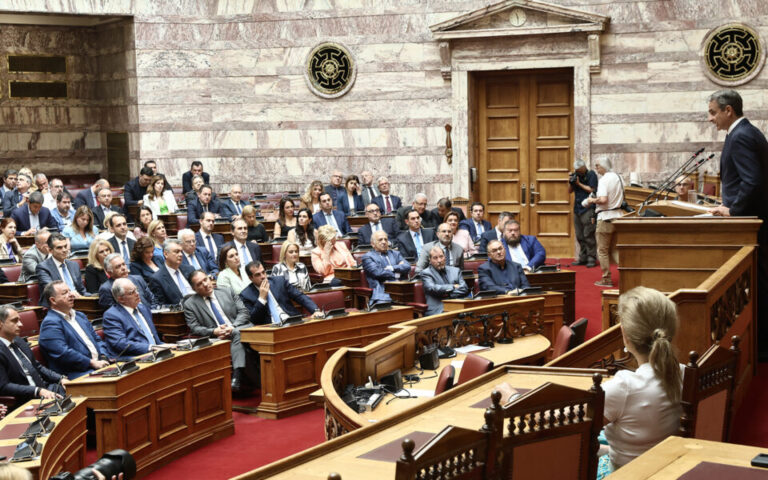Greek domestic politics is currently in a state of quicksand where everyone is threatened, and a lot will depend on how party leaders manage the political situation in the coming weeks. For the first time in recent years, there is growing uncertainty across the ideological spectrum.
Within the parties, personal and political attacks are being launched from different directions. Within the government camp, there is the discontent recorded by voters in the European elections, as well as internal conflicts expressed at the highest level by the two former leaders of the New Democracy party, which also served as prime minister for 7.5 years. It remains to be seen whether Kostas Karamanlis will move from a distanced stance to a confrontational one, or whether Antonis Samaras will further distance himself from the government by intensifying his long-standing criticisms.
The main left-wing opposition party, SYRIZA, has become even more inward-looking, with confrontations, resignations and dismissals of senior officials. Party leader Stefanos Kaselakis has chosen particularly confrontational rhetoric to respond to his defeat in early June’s elections and the growing challenges to his leadership, but this is hardly going to strengthen the party.
In the socialist party PASOK, party leader Nikos Androulakis was determined to seek a new mandate from his party’s base in an environment that seemed more favorable for other candidates who, at least in theory, had a better chance of winning the support of a wider range of voters.
The challenge for Kaselakis and Androulakis is complex, not just about the internal politics of SYRIZA and PASOK, but also about turmoil on the center-left in general and the ability of politicians to appeal to voters beyond narrow party lines.
Former Prime Minister Alexis Tsipras (and former leader of SYRIZA), who is trying to improve his image abroad by attending European institutions and taking part in events organized by his institute, is observing these developments from a distance but does not seem to believe that there is any pressure to take action, given his youth.
Everyone is trying to walk a delicate balance; the extent to which it succeeds will be seen along the way. But Prime Minister Kyriakos Mitsotakis’ statement at a meeting of his New Democracy party’s parliamentary group in response to criticism that he had steered the conservatives away from their core values, “If a tree does not grow any more and does not spread its branches, it means it has died,” is an approach aimed at many critics, but it is certainly less confrontational than when Prime Minister Kaselakis said “my SYRIZA does not get black money” when justifying the suspension of the party’s daily newspaper.
It is clear that the political situation is in flux after the European elections: large numbers of voters abstaining, the significant decline of New Democracy, the strengthening of the far-right and problems on the centre-left. How party leaders manage the situation within their parties will have a major impact on their party’s unity and future prospects.

